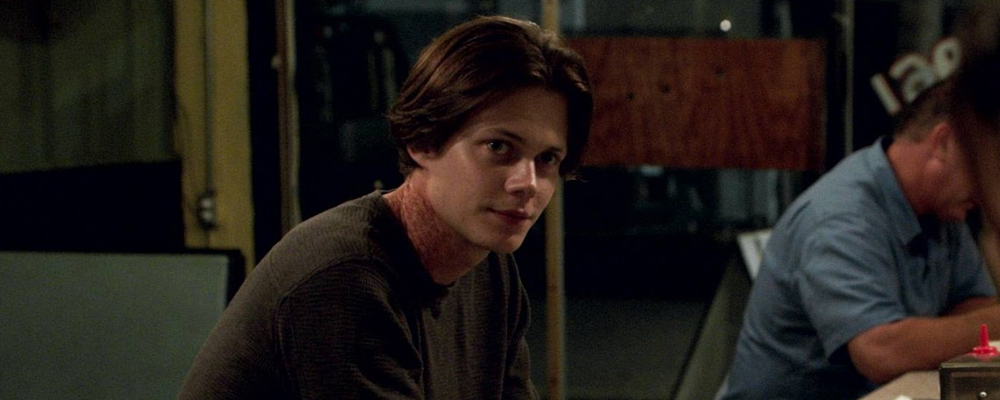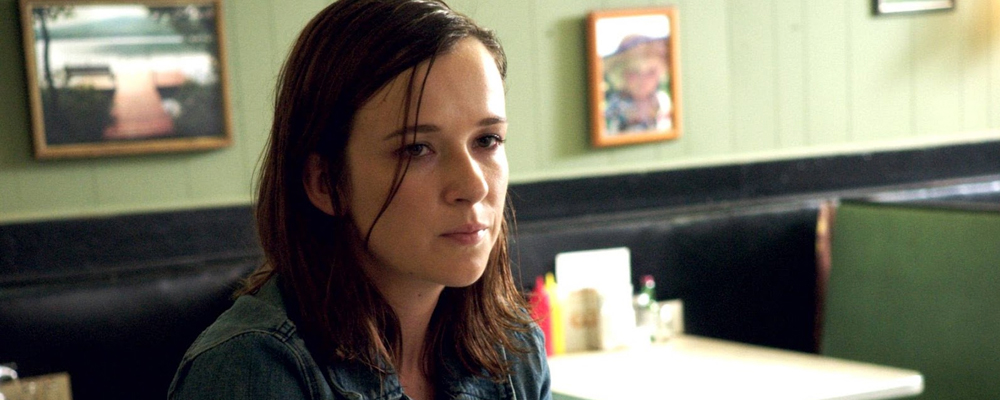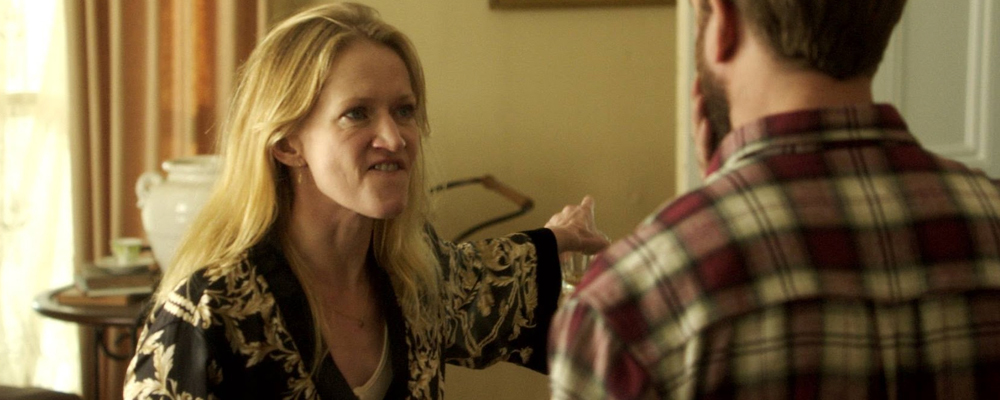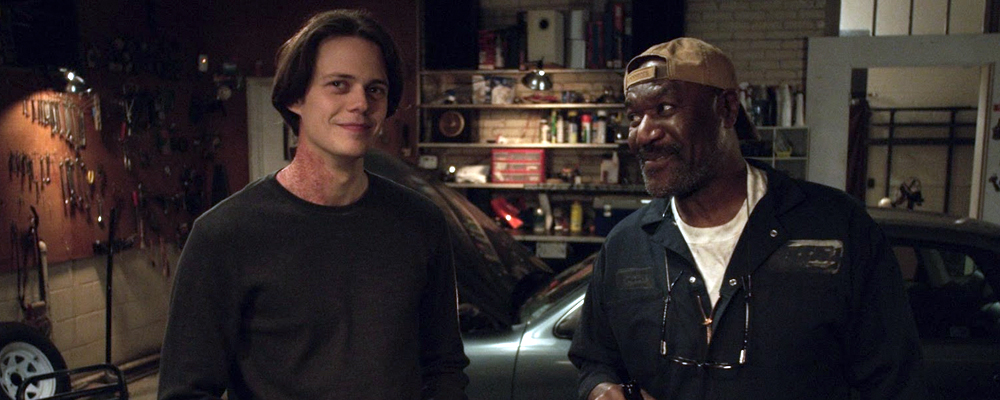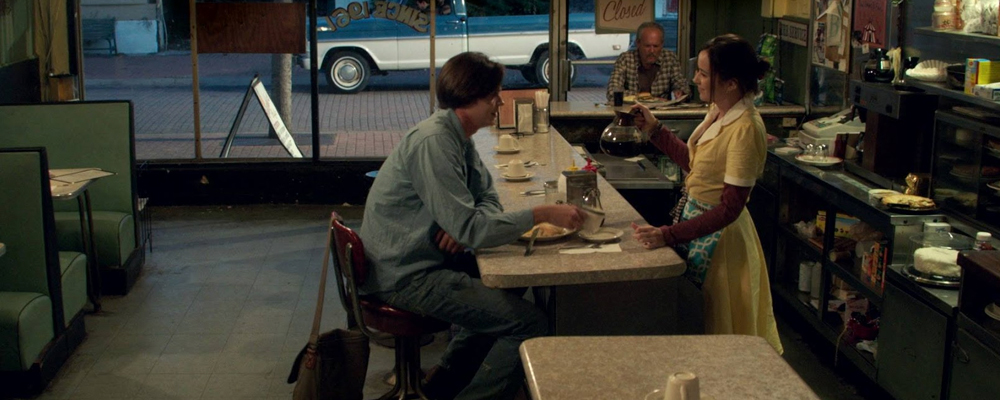‘Battlecreek’ Lifts Endearing Characters From a Mediocre Script
Aaron Berke
“Battlecreek” has a homegrown charm going for it. Director Alison Eastwood, in her second feature, places an intimate focus on the relationship between two young people bearing scars from the past. Eastwood brings an indie sensibility that too often feels like it’s straying into Lifetime movie territory. Still, she manages to create something that – for the most part – convinces, thanks to likeable characters and endearing performances from the two young leads.
Young Henry (Bill Skarsgard) leads a sheltered existence. He’s been homeschooled by his over bearing, self-christened prophet of a mother (Paula Malcomson) who seems to read everyone in town better than her own son. Henry has burns all over his neck and torso, which weigh on him physically and psychologically. Henry has a rare skin condition which prevents him from being out in the Sun. He’s therefore forced to lead a night owl existence, stuck in the small town of Battlecreek. Henry is a brilliant painter, but he spends most of his time working in the mechanic shop along with his mentor and father-figure, Arthur (Delroy Lindo) who wants to see Henry move on and succeed in the world. He also frequents the local diner, where he sits and reads poetry, while the cheery waitress, Melinda (Dana Powell) treats him to eggs, coffee, and adoring compliments.
Henry’s simple life is turned upside down when an attractive girl named Alison (Claire van der Boom) drives into town, on the run from a mysterious past. Sensing a kindred spirit, Henry immediately takes a liking to her, encouraging her to stay in town a while he and Arthur work on her broken-down car. Alison takes a job at the diner, where Henry constantly engages her in conversation. At first resistant, Alison eventually opens up to Henry, and the two begin to spend an increasing amount of time together – much to the chagrin of his mother, Tallulah. As Henry and Alison get to know each other, they reveal their vulnerabilities and the trauma of their dark pasts – a past which soon catches up with Alison.
Much of the film’s charm comes from Henry and Alison’s chemistry, which feels utterly convincing. Van der Boom carries a lot of weight behind her soft, kind expressions, and she always gives the impression that a storm cloud is hovering over her. Skarsgard, meanwhile, carries a combination of naivete and warmth with him, and he builds an increasing aura of confidence as he slowly puts together the pieces of his past. Alison provides Henry with the strength he needs to move past his fears, while Henry gives Alison a genuine love she’s never experienced before. They are two damaged characters with a very sweet relationship, which manages to carry the film through moments of overly saccharine dialogue.
“Battlecreek” often borders between convincing and unconvincing, as the emotion-fueled turns of Anthea Anka’s script threaten to take the film into overly sentimental or on-the-nose territory. The characters around Henry often lean too heavily into describing how wonderful he is. On the flip side, two characters who are essentially the town bullies, Carl and Magnus (Jeremy Sands and Reagan Wallace, respectively) crop up at extremely inopportune moments, mocking Henry for his condition. They feel a bit too contrived to be real and essentially exist as overt mechanisms for Henry to find his strength and resist them.
For the most part though, Henry’s relationships with the other characters feel lived in and genuine. His father-son relationship with Arthur is especially moving. Arthur gets some of the most authentic dialogue in the movie, as he tries to help Henry learn from his own mistakes. Lindo wonderfully inhabits the part as a black man who’s seen his fair share of struggle, and who wants to push Henry to take advantage of his status in the world. The film only acknowledges racial issues in this one brief moment, and that’s for the best. Clearly Arthur and Henry have a deep and loving relationship that transcends superficial barriers, which the film subtly suggests is a very important thing.
Eastwood has a real knack for characters, and it shows through her intimate direction. Given the film’s overly saturated dialogue, many of the one-on-one scenes between Arthur and Henry or Allison and Henry could have easily fallen flat. But Eastwood directs confidently, encouraging a natural closeness between the actors and within the camera. At this point in her career however, Eastwood has not yet attained her father’s flair for dramatics. The movie suffers from some third act problems, and the intimacy that Eastwood worked so hard to establish begins to unwind when a tormentor from Alison’s past reappears. Instead of building up this threat, and letting Allison and Henry unite against it, the movie bizarrely separates them. Alison faces her demons alone, while Henry goes to confront his mother about the past.
One the one hand, it makes sense that the two characters would need to confront their personal traumas alone. On the other hand, Eastwood spent so much time building up Alison and Henry’s relationship that to split them up at this late hour made no sense. It really seemed like Eastwood was going for a “better together” message rather than “stronger apart.” It’s not really Eastwood’s fault that the script’s direction suddenly shifted, but it seems as though she wasn’t quite sure how to recover the film.
As it plays out, the confrontation between Henry and his mother comes totally out of left field. Judging by Tallulah’s actions in the film, it’s clear that Henry needed to break away from her. However, once Alison shows up, Henry’s emotional attention is entirely fixed on her, and any sense of unresolved conflict with his mother seemed to fall onto the back burner. When the movie stirs the mother/son conflict back up in the last act, it feels unearned. It’s like the orbit of Anka’s script was steadily rotating in one direction, but then she remembered she had a plot point to resolve, and abruptly yanked it out of orbit. The shift throws the movie off course, and while Eastwood does her best to steady the film, there’s a sense of dramatic weightlessness that persists until the final few scenes.
The movie ultimately ends on a positive note, and Eastwood manages to satisfactorily finish Alison and Henry’s arc. It was a strangely bumpy road, but Eastwood sticks the landing. Overall, “Battlecreek” is a sweet and simple film. The dramatic moments don’t quite land, and it sometimes plays like it’s covering up a screenplay for a TV movie. Still, Eastwood and her actors manage to elevate the mediocre script. Taken as a romantic character study, “Battlecreek” succeeds as lite and charming fare.
“Battlecreek” Opens Nov. 3 in Select Cities.

